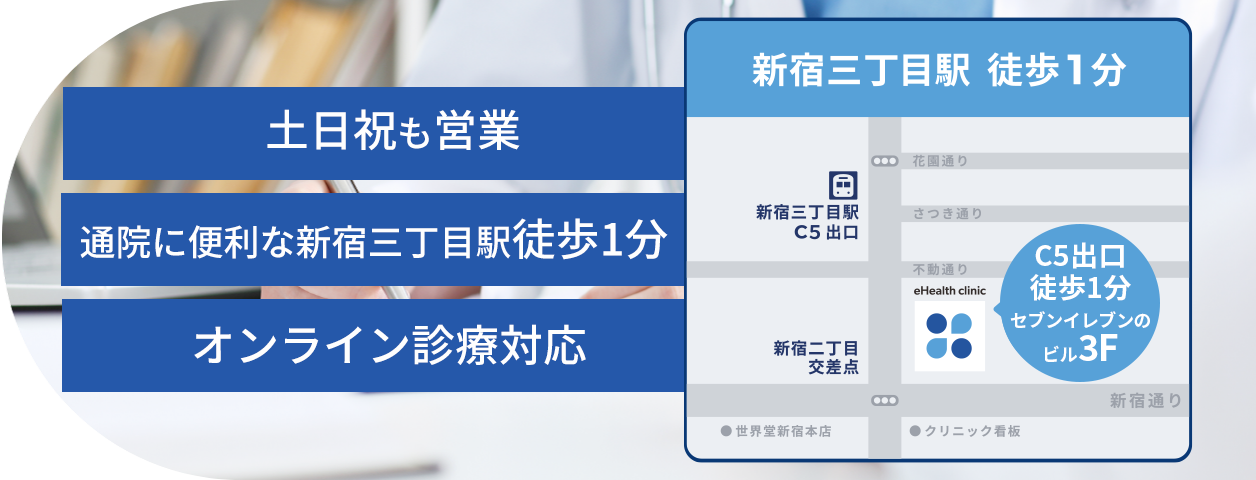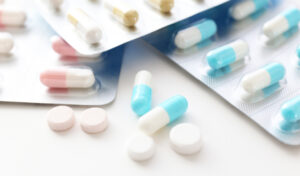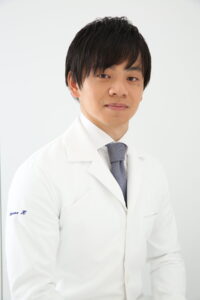不眠症は何科を受診すべき?病院に行くタイミングや症状別の診療科の選び方


Gout is a disease characterized by abnormally high levels of uric acid in the blood, which crystallizes and causes inflammation in the joints. It is predominantly found in men. When a person has gout, sudden swelling and intense pain occur in joints such as the big toe. Uric acid crystals tend to form more easily in joints farther from the body’s core, where the temperature is colder.
The pain from gout subsides in about 10 days, but if left untreated, it can recur and worsen. Therefore, it is important to seek treatment promptly. This article explains the medications used for gout.
■Reservation fee 5,500 yen (tax included)
Reservation fee will be charged when you make a reservation. If you change your reservation within 3 business days of the reservation date, you will not be charged a new reservation fee.
Please note that cancellations are generally not refundable.
※Reservation fee is charged only when you make a reservation through the dedicated reservation form.
※Reservation time is only an estimate and may vary depending on other patients’ treatments, such as emergency response and urgent response.
※If you cancel a self-pay treatment reservation made through the dedicated reservation form on the day of the reservation, a cancellation fee of 100% of the cost will be charged.
The primary goal of gout treatment is to alleviate pain and reduce swelling in the affected area using medications.
After completely subsiding the gout attack with pain relievers, the next step is to initiate treatment to control uric acid, which is the underlying cause of gout (referred to below as urate-lowering therapy). This is because lowering uric acid levels during a gout attack can actually worsen the symptoms. Typically, urate-lowering therapy is started after the gout attack has resolved. However, if the patient is already receiving treatment for hyperuricemia with urate-lowering medication, gout-specific medications are used in conjunction with ongoing urate-lowering therapy.
There are several types of medications used in the treatment of gout. These include analgesics for relieving gout attacks and medications that lower uric acid levels. Additionally, uric acid crystallization in the urinary tract can be prevented by combining the use of urinary alkalinizers.

There are two types of medications commonly used for gout attacks: “nonsteroidal anti-inflammatory drugs” (NSAIDs) and “colchicine.”
NSAIDs are commonly known as pain relievers and help alleviate symptoms such as pain and swelling.
In the case of a gout attack, high doses of NSAIDs are administered for a short period of time. As the pain subsides, the dosage is gradually reduced, and once the pain is completely relieved, the medication is stopped.
It’s recommended to take NSAIDs after meals as they can irritate the stomach and cause discomfort, indigestion, or stomach pain. If you are pregnant or breastfeeding, consult your doctor before using these medications.
Colchicine is used for the purpose of relieving and preventing gout attacks, which are sudden episodes of pain caused by gout. It suppresses the activity of white blood cells that cause pain and swelling, thereby alleviating gout attacks.
In addition, there may be warning signs before a gout attack occurs, and taking colchicine before the full onset of the attack can help suppress its effects.
However, it’s important to note that colchicine is solely a medication for suppressing gout attacks and does not reduce the underlying cause, which is the elevated uric acid levels.
The side effects of colchicine mainly include gastrointestinal symptoms such as abdominal pain, diarrhea, and vomiting, as well as peripheral neuropathy. It is not recommended for use in pregnant women due to a lack of demonstrated safety. Furthermore, when taken by the father, reports have indicated an increased risk of offspring with Down syndrome and other congenital abnormalities from the partner, so caution should be exercised when considering its use.
■Reservation fee 5,500 yen (tax included)
Reservation fee will be charged when you make a reservation. If you change your reservation within 3 business days of the reservation date, you will not be charged a new reservation fee.
Please note that cancellations are generally not refundable.
※Reservation fee is charged only when you make a reservation through the dedicated reservation form.
※Reservation time is only an estimate and may vary depending on other patients’ treatments, such as emergency response and urgent response.
※If you cancel a self-pay treatment reservation made through the dedicated reservation form on the day of the reservation, a cancellation fee of 100% of the cost will be charged.
Uric acid is a waste product that forms when purines are broken down. When uric acid accumulates excessively, it leads to a condition called “hyperuricemia.” If left untreated, uric acid can crystallize and accumulate in the joints. This crystallized uric acid causes inflammation, resulting in gout attacks (pain and swelling).
To prevent such a condition, it is important to gradually control uric acid levels over approximately six months using medications that lower uric acid. It is also important to avoid discontinuing treatment based on self-assessment just because a gout attack has subsided. Keeping uric acid levels high in the blood can increase the frequency of attacks and may lead to chronic arthritis.
There are various types of medications available, and the effectiveness may vary depending on the type of hyperuricemia. It is advisable to consult with a doctor to determine which medication is suitable for your condition.
In the treatment of gout, it is possible to use over-the-counter medications. However, certain precautions may be necessary depending on the type of medication, so it is advisable to refrain from self-medication. In addition to medication, lifestyle improvements are also essential in managing gout. Without proper treatment, there is a risk of recurring gout attacks, so it is crucial to consult with a physician if you have any questions or concerns.
At eHealthclinic Shinjuku, we consider individualized treatment options for each patient. We provide clear explanations about the treatment methods and ensure that you are comfortable and satisfied before determining the treatment plan. With a registered dietitian on our team, we can also provide advice on dietary adjustments.
【1 minute walk from Shinjuku Sanchome Exit C5】
Director speaks English and Chinese. Available on Saturdays, Sundays, and national holidays. Open until 20:00 on weekdays. 24-hour web reservations available.Internal medicine, nephrology, allergology, urology.
Address: Shinjuku Dori Toyo Bldg. 3F, 2-6-4 Shinjuku, Shinjuku-ku, Tokyo 160-0022, Japan
・1 minute walk from Shinjuku Sanchome Station (Exit C5) on Tokyo Metro Marunouchi Line, Tokyo Metro Fukutoshin Line and Toei Subway Shinjuku Line
・7 minutes walk from Southeast Exit of JR Shinjuku Station
・5-minute walk from Shinjuku-Gyoenmae Station (Exit 2) on Tokyo Metro Marunouchi Line
If you have any questions, please don’t hesitate to let me know.
Email:contact@ehealthclinic.jp

Hoichi Amano (M.D.,PhD)
・Administrator of eHealth clinic
・Visiting lecturer (School of Public Health,Teikyo University)
・Locum Doctor (Teikyo University Chiba Medical Center)
・Occupational health physician for several companies
• Education
2018 – 2021 Doctorate in Public Health, Teikyo University Graduate School of Public Health, Tokyo, Japan
2016-2018 Master’s Degree in Public Health, Teikyo University Graduate School of Public Health, Tokyo, Japan
2004-2010 M.D., Saitama Medical University, Faculty of Medicine, Saitama, Japan
• Certifications
Board Certified Member of the Japanese Society of Internal Medicine
Board Certified Nephrologist of the Japanese Society of Nephrology
Board Certified Member of the Japanese Society of Anti-Aging Medicine
Occupational Medicine Physician
Master of Public health
Doctor of Public health
If you have any questions or concerns, please feel free to contact us here.(We will respond during business hours.)
https://ehealthclinic.jp/contact/
■Reservation fee 5,500 yen (tax included)
Reservation fee will be charged when you make a reservation. If you change your reservation within 3 business days of the reservation date, you will not be charged a new reservation fee.
Please note that cancellations are generally not refundable.
※Reservation fee is charged only when you make a reservation through the dedicated reservation form.
※Reservation time is only an estimate and may vary depending on other patients’ treatments, such as emergency response and urgent response.
※If you cancel a self-pay treatment reservation made through the dedicated reservation form on the day of the reservation, a cancellation fee of 100% of the cost will be charged.